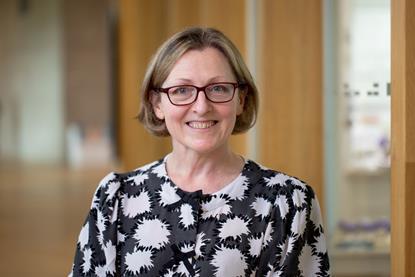Research culture
In this collection we explore fostering a positive research culture and scientific practices, covering topics such as reproducibility, open science, diversity and inclusion, leadership and mentorship, career instability, discrimination, misconduct and the evolving landscape of research ethics and integrity.
Leadership
What’s wrong with research culture?
A knotty mess of problems affects people doing academic research in the UK. Rachel Brazil tries to untie the tangle
How to improve research culture
Five ways to make chemistry departments better places to work
How EPSRC fosters inclusion
The pandemic has provided valuable lessons for funders to rethink research culture
Support and wellbeing
Act now to support early-career researchers
The Covid-19 pandemic has further highlighted long-existing issues that leaders need to take a stance on
Mental wellbeing in academia
Not enough has been done to support students during the pandemic
Science and research ‘are dead’ in Afghanistan
Afghan researchers and scholars flee or go into hiding as the Taliban’s return to power sees the science academy and universities closed
UKRI response to Black female academics on funding decisions called inadequate
Pledge to improve understanding and monitoring of inequality comes a year after open letter was first published
Diverse cultures
In situ with Tebello Nyokong
The influential chemist on nurturing confidence in students and taking inspiration from the humanities
The science of team science
Researchers and funders are exploring ways to make large collaborative projects more successful
Science faction
Taking inspiration from nerd culture
Science as a product of culture
The role of background beliefs and assumptions in the development of science
Change at the top
Improving research culture requires effort – but it’s worth it
Impact of Covid-19
Let it go
We have to accept that we can’t catch up on time lost in lockdown
How Covid-19 has changed us
While the pandemic has introduced more efficient and global ways of working, researchers and educators still have challenges to overcome
Pandemic continues to disrupt and depress UK researchers, survey finds
Researchers reported spending more time on peer-review activities, teaching and writing
Leading a lab through pandemic-induced uncertainty
Emphathy is vital to support mentees effectively
Publishing
Depositing hope for the future
The rise of ChemRxiv might mean that chemists can tackle thornier cultural problems
Australian Research Council’s ban on preprints in grants prompts outcry
Move derided as ‘hopelessly outdated’ and a setback for open science by researchers
Chemists react to UK umbrella funding body’s new open access mandate
Agency aligns itself with principles of Plan S by insisting on immediate open access
Four years of chemistry preprints
Nina Notman takes stock of how preprint severs have settled into the chemistry community
- Research
Embodying polymer chemistry with a purpose by upcycling plastics and trapping PFAS
For Frank Leibfarth, focussing on reactivity and selectivity helps him bridge the gap between fundamental and applied research
- Business
Rethinking hydrogen peroxide production
Hydro-Oxy and Addible both aim to transform how industry produces and uses a ubiquitous oxidant.
- Opinion
The chemistry of mentorship
Making connections from the small scientific community of Costa Rica to a global network of peers
- Opinion
The summer I became a science journalist
Mason Wakley on being a science writer intern at the Royal Society of Chemistry
- Webinar
Textiles in the age of sustainability: alternative methods for fabric dying and treatment
Learn about advances in sustainability of textile production – join us on 31 March
- Opinion
Is it cold in here?
Labs in Delhi, Aberdeen and Arizona will have different ideas of ‘room temperature’
- Careers
Abigail Mortimer’s career in glassblowing
Since starting as a trainee 17 years ago, her collaborative creations have underpinned teaching and research at the University of York’s chemistry department
- Podcast
Bench-stable butyllithium & secrets of Pompeii’s limescale
In this episode, we discuss the latest formulations designed to make a set of fiery reagents safer, explore what limescale can tell us about ancient civilizations and hear the latest headlines.
- Research
Was the ‘Baghdad battery’ really two cells?
A new study suggests it had an ‘outer’ cell that reacted with air to supply a higher voltage. But was it a battery at all?
- News
Public values scientists but fewer feel informed about science, UK survey finds
Survey will provide government with insights on how the public perception of science could be improved
- Opinion
To PhD or not to PhD? That is the question
Undergraduate student Umaymah Ahmad finds out what it’s like to go into academic research
- Opinion
Three centuries of Roman limescale reveals a dirty secret about Pompeii’s public baths
Carbon isotope ratios suggest that pre-aqueduct, the water was often contaminated with human waste
- Feature
The toxic chemistry behind skin bleaching products
The global skin-lightening market is worth over $10 billion and growing, but the unregulated products driving it contain dangerous chemicals linked to serious health risks. Zahra Khan speaks to the scientists and advocates trying to fix the problem
- News
Quantum dot pioneer and Nobel prize winner Louis Brus dies at 82
Brus shared the 2023 chemistry Nobel prize with Alexei Ekimov and Moungi Bawendi
- Webinar
From bean to brew: the chemistry behind the perfect cup of coffee
Join us on 26 February to discover the chemistry behind the aromas and flavours of one of the world’s favourite beverages
- Opinion
Alexandra Navrotsky: ‘I don’t think you attract people to science by big initiatives’
The nanogeoscientist on the importance of people to good science, the recent turnaround on diversity, equity and inclusion and why she will never be a professional artist
- Research
Prehistoric humans hunted with poisoned arrows thousands of years earlier than thought
Deadly plant alkaloids discovered on 60,000-year-old arrowheads
- Opinion
Archaeon’s lack of metabolism challenges definitions of life
A question that is not the same as asking whether something is alive
- News
Iupac welcomes new year in with a new president
International chemistry nomenclature organisation to be headed by Mary Garson
- Opinion
Why failing my first chemistry test was the best thing that ever happened to me
Lost in reactions, but driven by curiosity – how a supportive teacher enabled me to find my way to a career in science
- Careers
Building the future of separation science
Jennifer Kingston was awarded the Royal Society of Chemistry’s Technical Excellence Prize, which honours the vital role of technical staff in the chemical sciences community
- News
One year on, Trump’s second term has upended US science
Fears that the president’s return to the White House would seriously damage science agencies and universities have been borne out
- News
Scientists recognised in 2026 New Year’s Honours list
Chemists receive awards for work on nuclear waste management, forensics, sustainability and promotion of inclusion and diversity











































